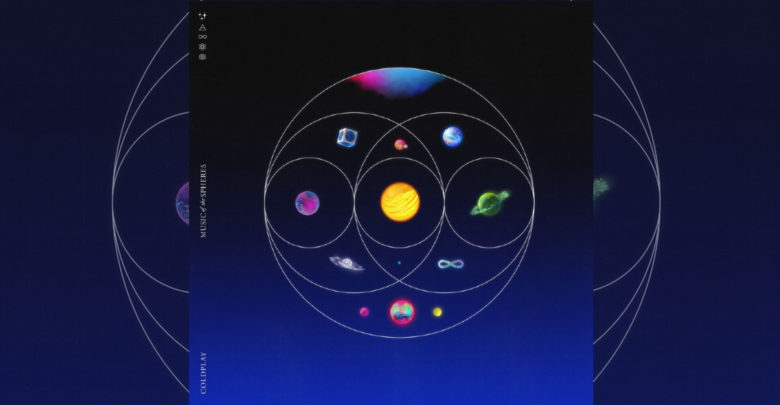Album Review: Coldplay’s Music of the Spheres
Despite familiar sounds, Music of the Spheres fails to deliver what its album predecessors did.
 Atlantic
AtlanticI remember in late November of 2019, walking out to my local record store to pick up Coldplay’s eighth studio album Everyday Life. After listening to the record, I was mesmerized, and its trance held me long after each play, with its tracks unraveling themselves more intimately with each listen.
Now, in 2022 I find myself in a similar situation, albeit with a deeper, more intimate relationship with music, induced by a pandemic-driven exploration into a plethora of different artists. As a result, I woke up early on a Friday, hopped through two different stores on Whyte and listened to Music of the Spheres in my more modern stereo system with the same outdated CD technology, with my thoughts ringing: “will this be as special as the last one?”
The album kicks off relatively familiarly, with the title track (stylized as an emoji, because I guess that’s a thing now) transitioning into Coldplay’s very contentious attempt at a summer hit, “Higher Power.” From the start, this track tells you everything you need to know about the album.
It’s about the hits, the sound, and the image of a band trying to be bigger than it has ever been before. It’s meant to be infectious, placing all its chips on a strong chorus chased by some weaker verses (with lyrics like “and I think my shoes united”), meant to be played in a stadium filled to the brim with fans. This same grandeur is echoed on the next track, “Humankind,” which is one of the more derivative, albeit enjoyable, tracks on the record.
Tracks like “Let Somebody Go” and “Human Heart” are tracks that Coldplay have already done better before. Their 2014 album Ghost Stories is such a glaring example of somber sounds done right that these tracks, while nice to hear, are far from being anything better or evolutionary from what the band has already done, save for the sonic style on “Human Heart” (once again, stylized as a heart emoji, because I guess this is a thing now).
One of the most jarring tracks on this album, “Biyutiful,” takes frontman Chris Martin’s vocals and throws them haphazardly into a chipmunk-esque filter in a collaboration with himself. It is an odd decision, yet it works in a ‘get used to it’ type of way, yet even this is an idea that has been more memorable in previous attempts (2019’s “Cry Cry Cry” off of Everyday Life).
The biggest song on the album, “My Universe,” is a song that won before it left the gate. BTS’s influence on the track is mesmerizing, anthemic, and successful. It doesn’t try to trick the listener into thinking it’s anything that it’s not, with the chorus ringing through within the first few seconds of the track. It is the most pop that Coldplay has ever sounded since their inception back in 1999.
Music of the Spheres, in all of its ups and downs, justifies its existence on the closing track “Coloratura.” Chris Martin, Jonny Buckland, Guy Berryman, and Will Champion rent out a quarter of this album’s time to this single track, and not a moment of its time is ever wasted. It is sonically distant from the rest of the tracks, so much so that it feels out of place in all the right ways. It is distinctly one of Coldplay’s best songs, and to have it on the tail end of an otherwise mediocre album is both a welcomed surprise and wasted potential.
Shortly after the last keys rang out and the CD clicked itself to a stop, I placed it back on my shelf, feeling a distinct void. Music of the Spheres is, at its best, a mediocre album. It fails to reach the heights that most of Coldplay’s albums have reached before, save for the final track that justifies the album’s existence much too late into the tracklist. As Coldplay inches closer and closer to their final album, Music of the Spheres feels like filler, feeling more like an excuse to go on a global tour than an actual album.




